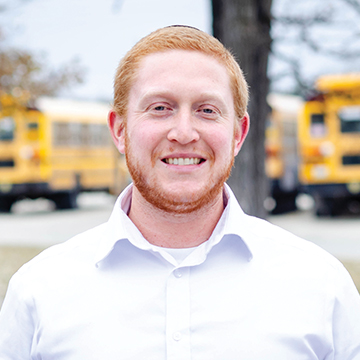“Special needs”, “special education”, “exceptionality”, or just “special” are words we in education use and hear a lot, and for good reason. They’re entrenched in Manitoba curricular documents, philosophy of inclusion, and are integral to education funding.
No matter your role as an educator, you’ve most likely encountered, used, and engaged in this terminology. However, as teachers working toward the creation of a more equitable, diverse, and inclusive school community and society, we need to reconsider carefully what we’re saying when we use these words.
As educators who work for and with students with disabilities, we want to support and engage students to the best of our ability and encourage exploration and wonderment about all aspects of our global village. After all, a student’s experience in school will have a considerable impact on their world view and relationships to those around them.
So, when it comes to the terminology we use, we need to ask ourselves two important questions: What does the disability community say about terms like “special needs”? And what does the research say about these terms?
Identity, Community, and Pride
Anjali Forber-Pratt, assistant professor at Vanderbilt University, is one of six authors of a paper that outlines the rationale behind and importance of the broader #SaytheWord movement. She says alternate wording for disability diminishes the identity and reality of disabled persons.
“Disabled people are reclaiming (their) our identities, our community, and our pride. We will no longer accept euphemisms that fracture our sense of unity as a culture.”
K-12 Canadian education has a long history of perpetuating stigma and marginalization of people with disabilities. With a shift away from the medical model, educators need to make a shift in the way disability is viewed, treated, and understood in our schools. “Decisions about language have important sociocultural meanings in the disability community, and erasure of the term ‘disability’ can evoke fear and frustration among those who claim a disabled identity and align with disability culture.”
Around 15 per cent of the world’s population, or estimated 1 billion people, live with disabilities, comprising the world’s largest minority. It’s clearly time to listen to what people with disabilities are saying, and if we are serious about inclusion, equity, and diversity, we as educators need to stop using “special needs”, “exceptionality”, “special”, and the like.
What the Research Says
Euphemisms are expressions used in place of words or phrases that otherwise might be considered harsh or unpleasant. “Special Needs” is an ineffective euphemism” is the title of a study published in the Journal of Cognitive Research: Principles and Implications, in 2016. It sought to explore the effects of the term “special needs” and its connotations when compared to the term “disability”. Researchers observed that persons are viewed more negatively when described as “special needs” than when described as having a “disability”. Even for members of the general population who have a person connected to disability (e.g., as parents of children with disabilities), the euphemism “special needs” is no more effective than non-euphemized term “disability”. The study also collected free associations to the terms “special needs” and “disability” and found that “special needs” is associated more negatively: “special needs” conjures up more associations with negative stereotypes and stigma, whereas “disability” is associated with notions of inclusivity.
Unfortunately, history has shown that many contemporary slurs for members of racial, ethnic, or sexual minority groups began as euphemisms and became dysphemisms.
Confronting your ‘isms’ – racism, sexism, ableism – starts with watching what you say and do. Use ‘disabled’, it’s not a dirty or bad word, it’s an accurate descriptor.
Lifelong Learning: It’s What We Do
Educators are leaders. We are also learners in all that we do. Finding space for inclusion means listening and learning from the communities we serve.
Dr. Nancy Hansen is an Associate Professor and Director of the Interdisciplinary Master’s Program in Disability Studies at the University of Manitoba. Dr. Hansen urges educators to understand the implications of alternate terminology for disability.
“We are not hurt by or ashamed of the word,” she says. “It is a source of pride and dignity for myself and many others.”
The word disabled connects people to each other, a common disability history, and to the lineage of all those who fought, protested, and persisted so that one day we could be proud of disability history, too.
The language we use mirrors the way we think. Embracing the word disabled, fighting the urge and conditioning that demands we distance ourselves from it, is a powerful illustration of self-determination in action. It epitomizes how far the disability community has come. Let’s make terms like “special needs”, “exceptionality”, and “special education” a thing of the past.
Let’s demonstrate our commitment to lifelong learning.
– Originally published in the Winter 2022 issue of the MB Teacher

Michael Baker is a writer/contributor for the MB Teacher magazine, a Ph.D. candidate and a student services educator in the Sunrise Teachers’ Association who works primarily with students with disabilities. He is also a featured sessional-lecturer at the University of Manitoba.
